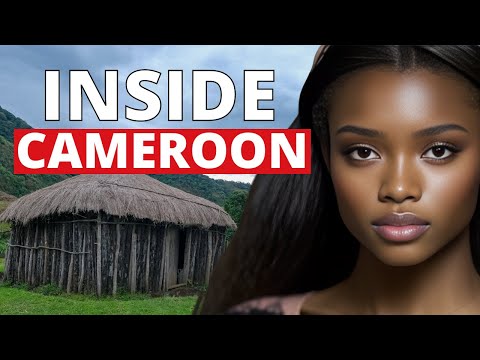
Cameroon, often referred to as “Africa in miniature,” presents a remarkable tapestry of landscapes, cultures, and history. This Central African country offers a unique blend of experiences that range from exploring bustling city markets to trekking through lush rainforests. However, life in Cameroon can also pose various challenges and dangers that visitors should be aware of. Here’s an encapsulation of what life truly entails in this diverse nation—from its rich cultural heritage and historical significances to the notable destinations and crucial travel advisories.
## The Cultural Mosaic
Cameroon’s culture is as diverse as its geography. The country is home to over 250 ethnic groups and languages, each contributing to the national identity. Major cultural regions include the Fulani-dominated North, known for their elaborate ceremonial dress and skilled horsemanship; the Islamic influences in the Far North; the Sawa coastal peoples with their vibrant music and dance traditions like Makossa and Bikutsi; and the Bamileke and Bassa in the Western and Central regions known for their colorful masquerades and rich folklore.
### Festivals such as Ngondo (Sawa), Nyem-Nyem (Mbum), or the Bamoun Nguon Festival celebrate ancestral traditions through music, dance, storytelling, and rites. These events offer invaluable insight into the collective spirit that defines Cameroon.
## Historical Context
Cameroon’s history plays a critical role in understanding its present context. The region has been inhabited since Neolithic times but gained prominence during the trans-Saharan trade eras as part of powerful Sahelian kingdoms like Kanem-Bornu. Colonial periods saw it under German administration before being divided between Britain and France after World War I. This dual colonial heritage influences today’s linguistic landscape—French and English are both official languages.
The struggle for independence was fervent with significant figures like nationalist Ruben Um Nyobè advocating strongly before independence was finally achieved in 1960 (for French Cameroon) and 1961 (following a referendum in British-held territories).
## Noteworthy Destinations
### Mount Cameroon
One of Africa’s largest volcanoes provides not only a challenging trek but also stunning panoramic views. It’s an experience blending natural beauty with adventure.
### Waza National Park
A must-visit for wildlife enthusiasts; elephants, lions, giraffes among others roam relatively freely here—offering spectacular safaris.
### Douala
The economic capital buzzes with energy offering markets like Marché Central where crafts meet commerce amid vibrant urban life.
### Limbe
Nestled by Mount Cameroon on one side and the Atlantic Ocean on another, Limbe is famous for its botanical gardens and black sand beaches—a serene escape from bustling city life.
## Dangers & Precautions
Life in Cameroon comes with its risks—from health-related issues such as malaria to security concerns including petty theft or more severe threats such as political unrest or attacks by extremist groups especially near borders with Nigeria including areas around Lake Chad Basin.
#### What You Should Not Do:
– **Avoid flaunting wealth:** Displaying expensive gadgets or jewelry can make you a target for theft.
– **Do not travel without appropriate documentation:** Always have your identification; police checks are common.
– **Steer clear from political demonstrations:** They can turn violent unexpectedly.
– **Ignore wildlife regulations:** When on safaris or visiting parks like Waza National Park, respecting guidelines regarding distance from animals ensures your safety.
– **Overlook local customs:** Understand basic norms—dress conservatively where required, greet elders first out of respect etc., to avoid offending locals.
## Conclusion
Navigating life in Cameroon requires an understanding not only of its beauty but also its complexities. With a respectful approach towards local customs paired with adherence to safety measures while exploring everything this rich nation has to offer—from Mount Cameroon’s heights to Douala’s dynamic streets—visitors can embrace a truly enriching experience marked by diverse cultures steeped in profound histories against incredibly picturesque backdrops!
